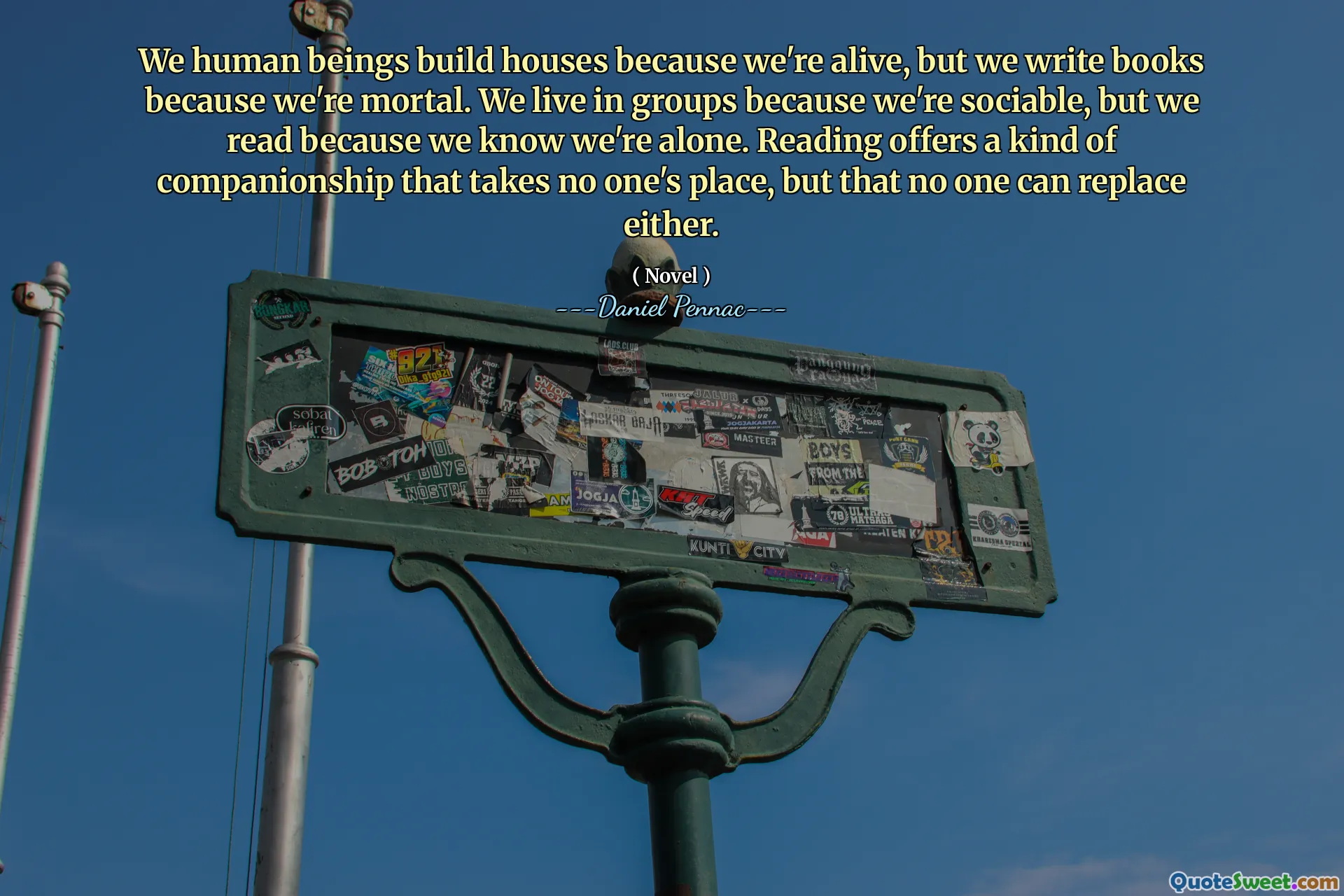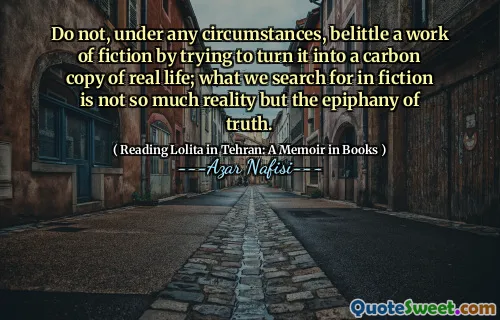
We human beings build houses because we're alive, but we write books because we're mortal. We live in groups because we're sociable, but we read because we know we're alone. Reading offers a kind of companionship that takes no one's place, but that no one can replace either.
This quote beautifully captures the paradoxical nature of human existence and the role of literature within it. Our fundamental drives—building homes, socializing—are tangible expressions of our physical and emotional needs, grounded in our corporeal existence. Yet, as mortal beings, our curiosity and craving for understanding extend beyond our fleeting physical lives, prompting us to write and read. Making houses symbolizes the necessity of shelter, a response to life’s physical realities. Conversely, writing books as a response to our mortality reflects a desire to leave a lasting legacy, to communicate beyond our ephemeral periods. The notion that we live in communities because we seek connection underscores our innate sociability, yet reading emerges as an act that acknowledges our solitude. When we read, we create an intimate companionship—an internal conversation that alleviates loneliness without diminishing our individuality. This companionship is unique; it neither replaces human connection nor is it entirely separate from it. Literature becomes a silent friend, a mirror reflecting our inner worlds, our fears, hopes, and questions. It reminds us of our shared humanity while respecting our solitude. Such insights highlight the transcendence of reading, which offers solace and understanding, fostering self-awareness while feeling connected to universal truths. Ultimately, the quote emphasizes that the human condition is a delicate balance between the tangible and the intangible, the physical and the spiritual—a balance that literature helps us navigate.






